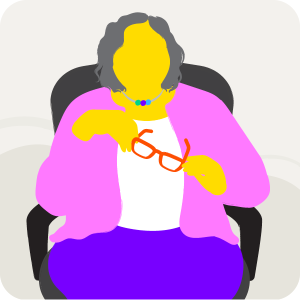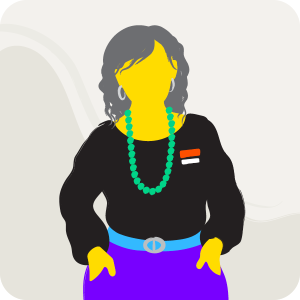
Kate
Sexual assault response
Kate is a senior Counsellor Advocate working at a Centre Against Sexual Assault (CASA). She began her career as a teacher before transitioning into social work, bringing with her a wealth of skills in facilitation, curriculum development and pedagogy.
Her role at CASA reflects the sector’s focus on therapeutic counselling, support and advocacy for people impacted by sexual assault alongside prevention work. Many of the staff at CASA are qualified social workers or psychologists. The majority of their work involves one-on-one counselling using a trauma-informed and intersectional feminist framework, offering support to children, young people and adults who have been impacted by sexual violence.
CASA’s broader mission also encompasses community education and raising awareness about sexual violence, including running long-standing education programs in schools and the wider community.
Schools frequently contact CASA after incidents of sexual violence, relying on specialists like Kate to provide both immediate recovery support and interventions to prevent further harm. While much of this work occurs in high schools, Kate has noticed a growing demand from primary schools for support in identifying and addressing early signs of harmful sexual behaviours, which are often complex.
Kate has expertise in designing and delivering education programs on sexual violence, consent and respect in relationships, informed by her direct client work. There has been increasing demand for education on affirmative consent following the introduction of affirmative consent laws in Victoria. These requests often come from teachers seeking guidance on how to talk to children and young people about consent and sexual violence. This work requires Kate to be well-versed in relevant legislation so she can confidently address questions during training delivery. It also necessitates staying up to date on contemporary issues such as technology-facilitated sexual abuse and AI-generated image-based abuse.
The critical and sensitive nature of this work demands more than a one-off session, which can be seen as a “tick-the-box” approach. Kate is adept at designing and tailoring curriculum to specific contexts and audiences. Successful delivery requires advanced and engaging facilitation skills and confidence, particularly when responding to pushback in classroom settings – a challenge Kate notes is becoming more common. It also involves a whole-of-school approach, for example delivering information sessions and resources to parents/carers and professional development to education staff and other key stakeholders to reinforce consistent messaging and increase confidence.
Community engagement is another important aspect of counsellor advocate roles. Building partnerships with local services enables the community to “wrap around” this work, reaching more diverse populations and improving their access to supports.
Kate’s work with young men and boys mostly occurs in the context of work in schools, and involves engaging with everyone surrounding the young person, including family and school staff.
Consent conversations and workshops can sometimes prompt disclosures of sexual assault. Many teachers bring CASA in to deliver this content, as responding to disclosures is complex and resource-intensive, particularly when working with young people. Counsellor advocates have a strong understanding of trauma informed responses and procedures following a disclosure, along with knowledge of available support systems. Kate emphasises the importance of managers and colleagues providing scaffolding to support workers responding to disclosures, ensuring they have the wraparound assistance needed to perform this challenging work effectively.
Kate believes continuous learning is essential to doing her work well. However, she has noticed a concerning lack of time and formal opportunities to develop key skills such as facilitation, workshop design and evaluation. Often, staff build their knowledge, skills and confidence by shadowing more experienced workers and co-delivering programs.
Kate also highlights the importance of prevention workers having a strong understanding of age-of-consent and affirmative consent laws when engaging with communities about respectful relationships. While she has been supported to learn about these laws as a response worker, she hopes that future capability-building initiatives will extend similar support to the prevention workforce.
Read more portraits of prevention
Mel
Women’s health service
Mel is a program manager leading a gendered violence prevention program at a Women’s Health organisation, which is part of Victoria’s Women’s Health Services Network.
Starlady
LGBTIQ+ primary prevention – Zoe Belle Gender Collective
Zoe Belle Gender Collective is a small trans and gender diverse-led advocacy organisation that was previously funded as a pilot project under Rainbow Health Australia’s primary prevention project.
Jessica
Sport setting
Jessica is a manager in a specialist gendered violence prevention team that is funded to build the capacity of community sport and recreation to address and prevent gender-based violence.



